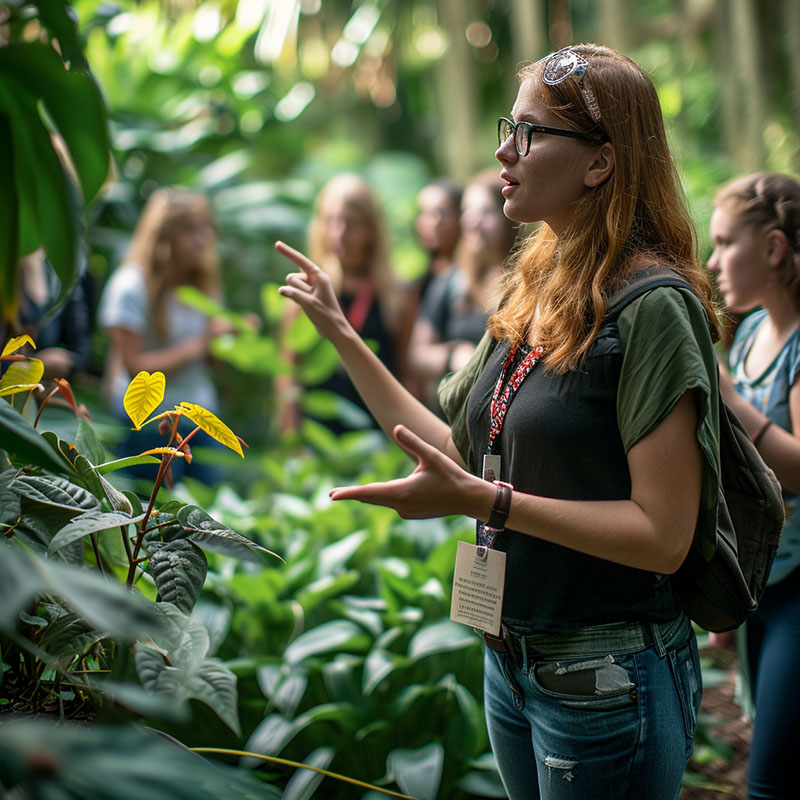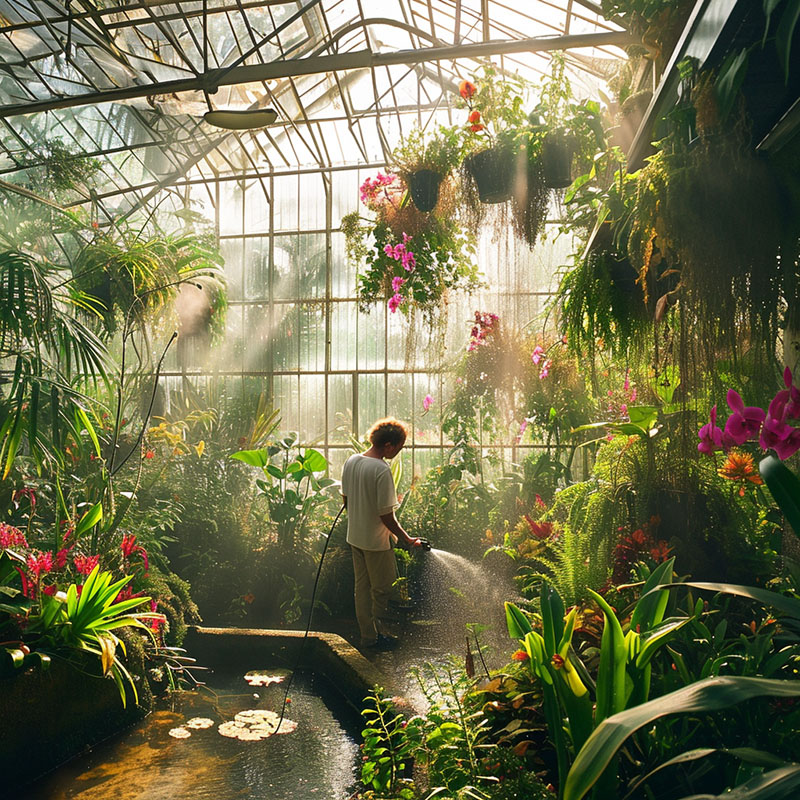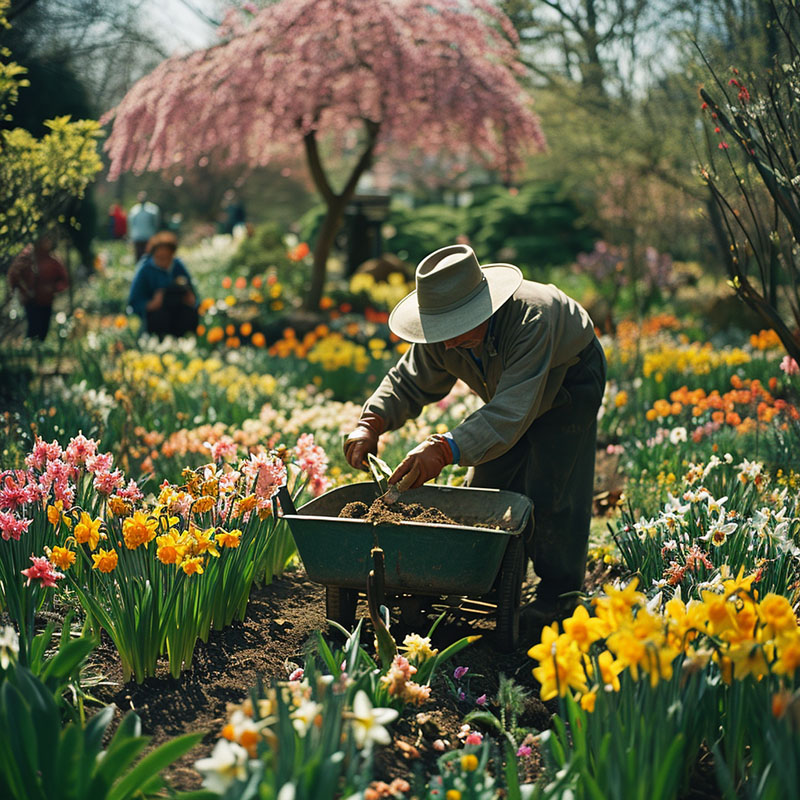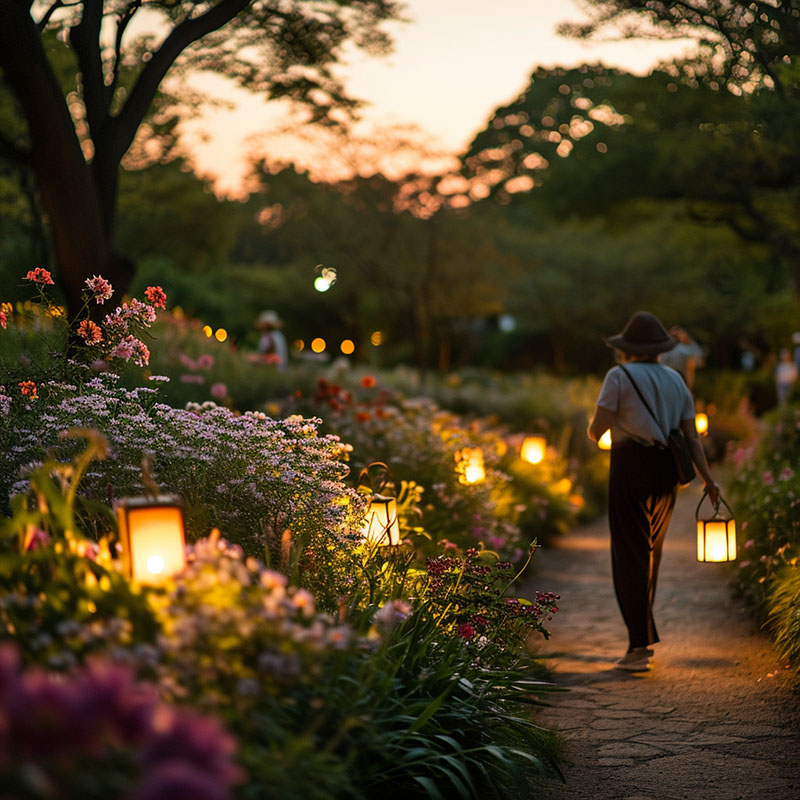
A career in botanical gardens offers a unique blend of horticulture, conservation, and education. Professionals in this field are responsible for the cultivation and care of a wide variety of plants, both native and exotic, with the goal of creating inspiring and educational environments for visitors. Working in a botanical garden might involve tasks such as plant selection, landscape design, maintaining plant health, and conducting research on plant species. Additionally, these roles often include educational responsibilities like leading tours, conducting workshops, and collaborating with schools and community groups to promote environmental awareness and conservation.

To prepare for a career in botanical gardens, a young person can start by pursuing a formal education in fields such as botany, horticulture, environmental science, or landscape architecture. Hands-on experience is invaluable, so volunteering or interning at local gardens, nurseries, or conservation projects can provide practical skills and a deeper understanding of plant care and garden management. Joining relevant clubs or societies, such as a gardening club or an environmental group, can also be beneficial for networking and gaining insights into the field. Additionally, staying informed about current trends in sustainable gardening, conservation techniques, and environmental policies will equip aspiring botanical garden professionals with the knowledge needed to succeed in this dynamic and rewarding career.

Horticulture is the science and art of growing plants for human use and enjoyment. Working in horticulture at a botanical garden involves maintaining plant collections for conservation, research, education, and public display.
Some key aspects of a horticulture career at a botanical garden include:
- Plant Curation - Caring for diverse botanical collections, ensuring plants remain healthy, labeled properly, and presented attractively. This involves propagation, irrigation, fertilization, pruning, pest management etc.
- Research Support - Assisting scientists with conservation research on rare and endangered plant species. Tasks may include collecting data/samples, plant maintenance in controlled research environments.
- Exhibit Development - Designing, installing, and maintaining public garden exhibits that are educational, environmentally sustainable, and visually striking. Considerations include selecting appropriate themes, plant varieties, hardscapes, interpretive elements etc.
- Visitor Education - Interacting with the public to inspire appreciation and understanding of the plant world. Horticulturists often lead guided tours and give presentations to teach plant biology, horticulture practices, and conservation.
- Garden Management - Planning, budgeting, supervision to keep plant collections, facilities, equipment in optimal shape year-round. This can involve long-term strategy and master planning for garden spaces.
The field requires extensive plant identification skills, physical ability to perform manual labor, creativity, communication skills with the public and other staff, and a strong commitment to plant conservation and education goals of botanical gardens.

Horticulture Career Example
Karen Daubmann began as the director of horticulture at Phipps Conservatory and Botanical Gardens on June 23, 2003. Daubmann was most recently lead horticulturist at the Madison, Wisconsin-based Olbrich Botanical Gardens.
"Karen is certainly a rising star in the botanical garden arena. Her experience, passion, and enthusiasm will help us to continue our 110-year reputation for horticultural excellence," Richard V. Piacentini, executive director, said. "Her background in both display and horticulture makes her an especially good fit with the current Phipps and our new expansion plans," Piacentini said.
Past employment includes a variety of horticulture positions with Walt Disney World, Longwood Gardens, and the Rhode Island Spring Flower & Garden Shows.
Daubmann holds a master of science degree in public horticulture administration from the University of Delaware through the Longwood Graduate Program and bachelor's degrees in landscape architecture and urban horticulture and turf grass management from the University of Rhode Island.